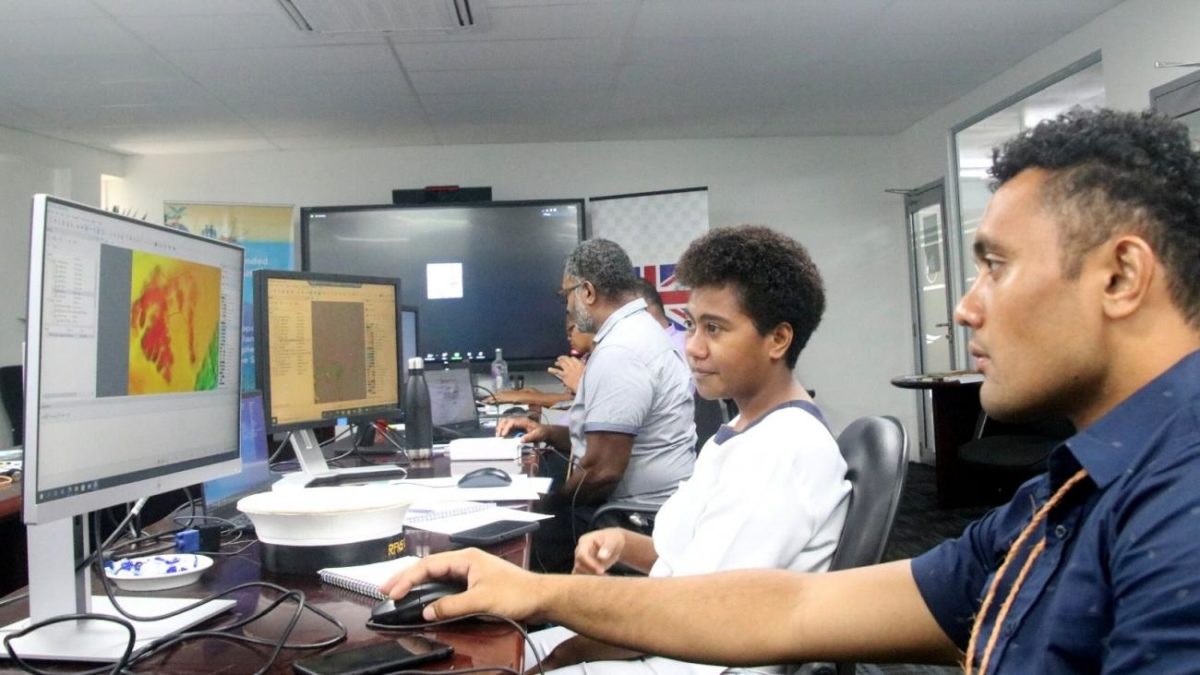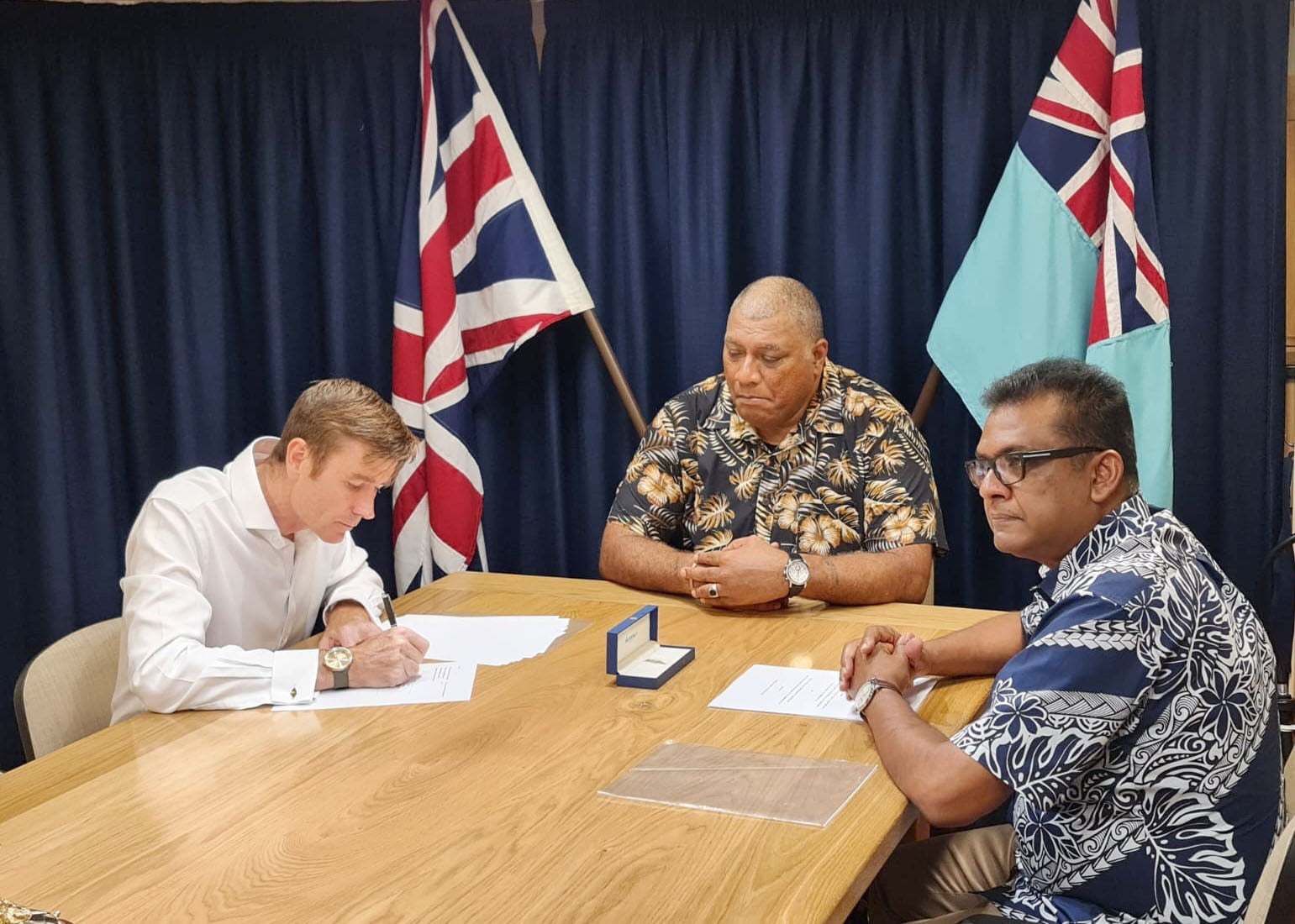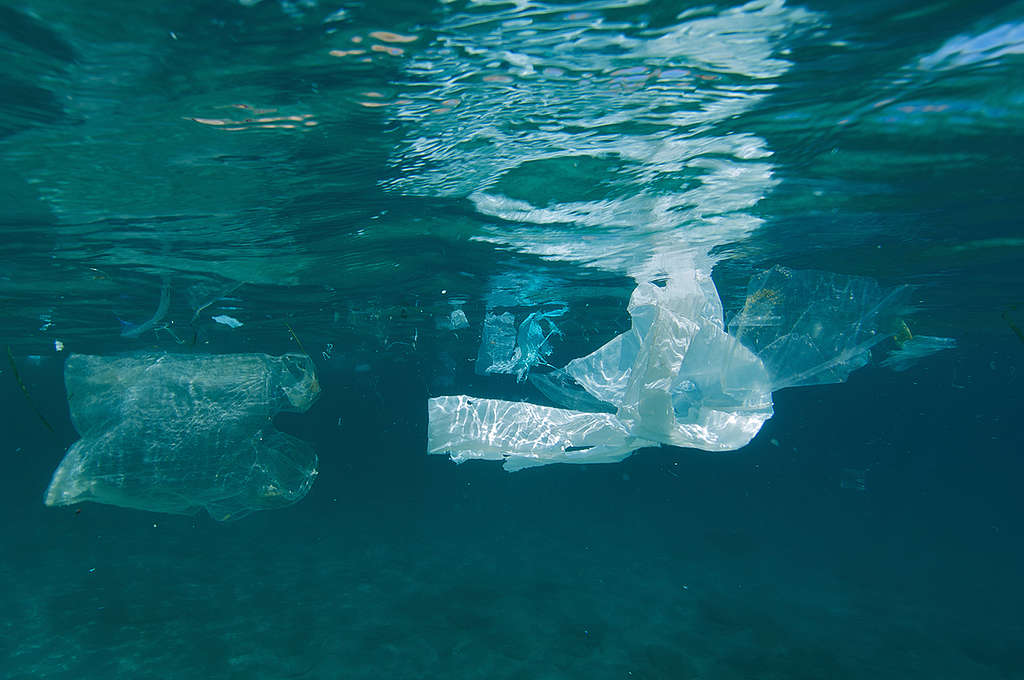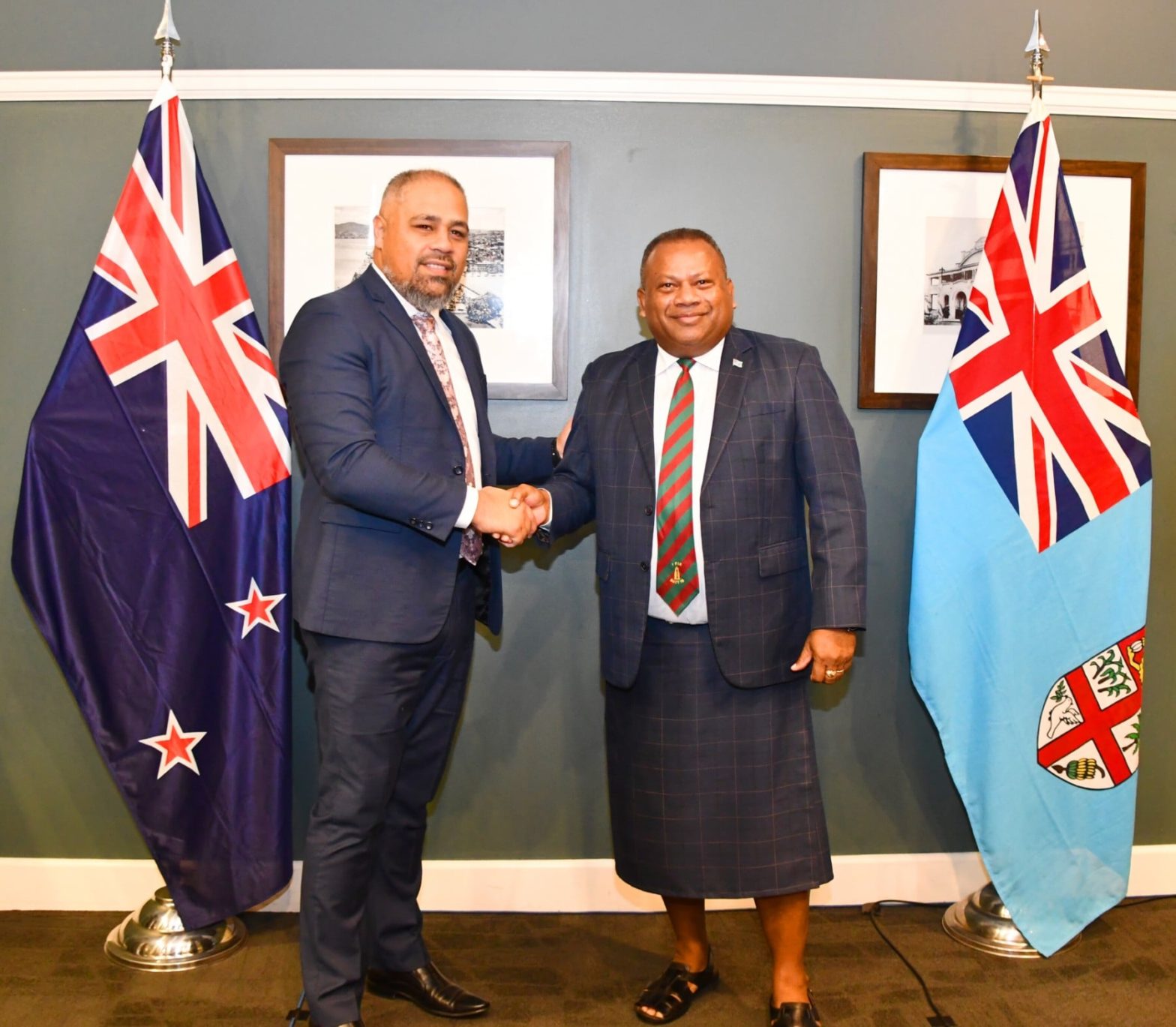Nine technical officers from Fiji’s Maritime Affairs Coordinating Committee received specialised software training to map and define the extent of Fiji’s maritime zones, including extended continental shelf areas.
The training, funded by the United Kingdom and delivered in partnership with the Pacific Community (SPC) under the Pacific Extended Continental Shelf Project, is the first of several across the region that will strengthen national ocean governance through improved local knowledge and technical skills.
Permanent Secretary of Defence, Policing, and National Security Manasa Lesuma said at the training opening on Monday 28 March: “Maritime zones are the foundation of good ocean governance and Fiji is committed to delimiting and declaring all its boundaries and zones with the United Nations.
Under the UN Convention on the Law of the Sea, countries are entitled to an exclusive economic zone extending 200 nautical miles (M) from the coastline. In some cases, a country’s continental shelf may extend beyond 200 M. The portion of the continental shelf beyond 200 M is called the “extended continental shelf” or simply ECS.
A country has exclusive, sovereign rights to conserve, manage, or explore seabed resources such as oil and gas, bottom-dwelling creatures such as clams, crabs, and corals, and deep-sea minerals within their ECS.
The British High Commissioner to Fiji, Dr Brian Jones, said: Establishing rights over these ECS areas is crucial for the stability and development of Pacific island countries. Until these gaps in the world map are closed, Pacific island countries may not be able to fully protect their interests and achieve their blue economy aspirations.
Mapping and declaring these ECS areas, however, is not an easy task. To complete a submission to the UN Commission on the Limits of the Continental Shelf (CLCS) requires specialised geoscience expertise and deep-sea data which is not always readily available in the Pacific. In addition, submissions may wait years in the queue before they are reviewed by the CLCS.
SPC Deputy Director-General Science and Capability, Dr Paula Vivili, said: “One of the challenges we’ve seen across the region has been the loss of institutional knowledge at the national level. The people who drove much of this work when it began in 2005 have moved on or started to retire.
In this respect, last week’s training filled a critical gap for Fiji by training up the next generation of maritime zone experts to take up the baton. Most trainees were early career professionals with expertise in geospatial analysis, hydrography, and geoscience who gained familiarity with the software for the first time.
The training recipients were awarded certificates at a ceremony hosted at the British High Commission Residence in Suva on Friday 01 April.
Subsequent trainings under the Pacific ECS Project will be hosted in Vanuatu and Solomon Islands later this year. Launched in July 2021 under the UK’s Conflict, Stability, and Security Fund, the £363,000(US$473,000) project is supporting Fiji, Solomon Islands, Tonga, and Vanuatu to build local capacity, procure specialised software and hardware, acquire data, and, where required, engage experts in geophysics and legal drafting to help progress ECS submissions.
This story was originally published at UK Govt on 04 April 2022, reposted via PACNEWS.




